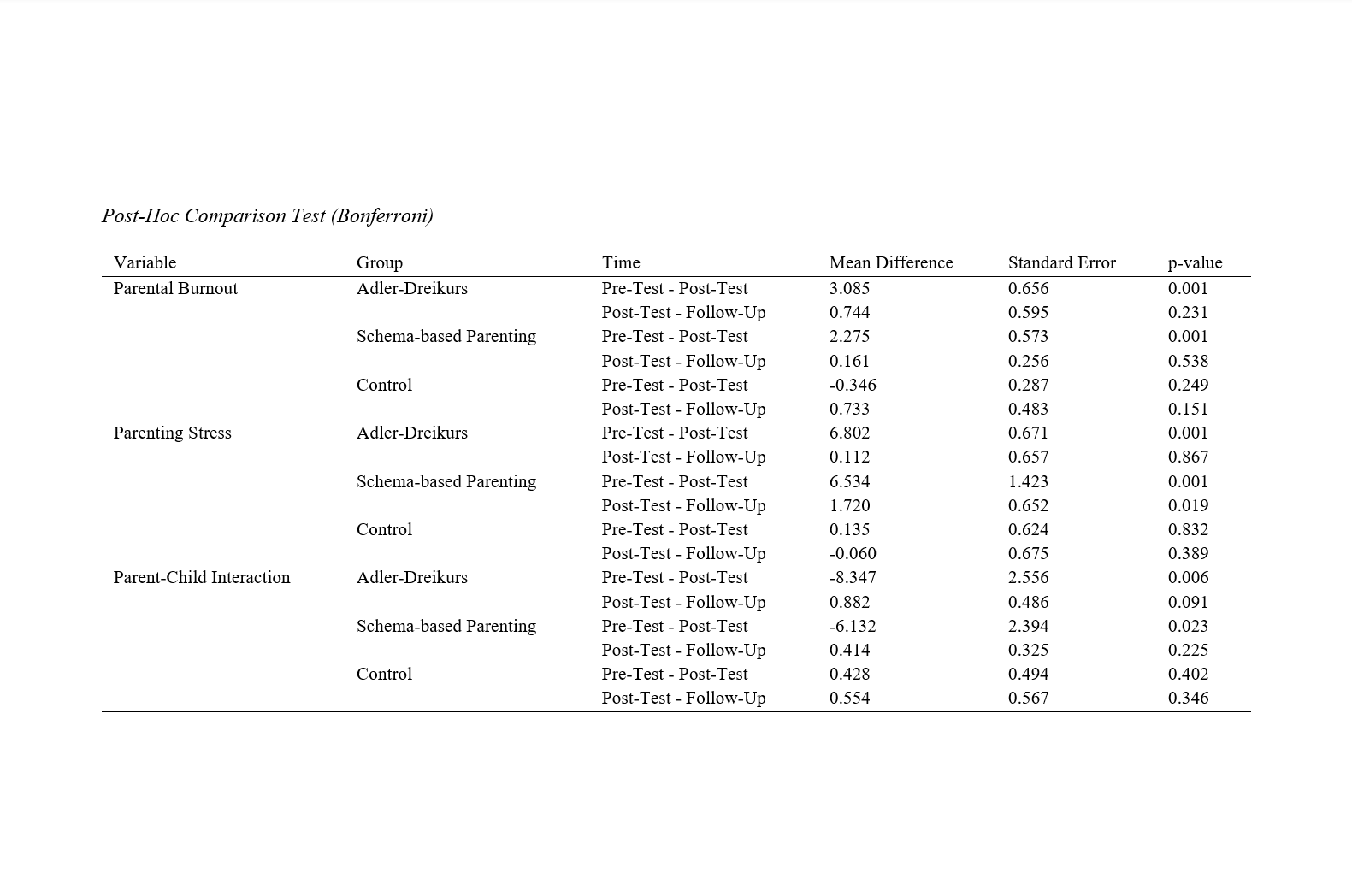Comparison of the Effectiveness of Schema-Based Parenting Training and Adler-Dreikurs Approach on Parenting Burnout Symptoms, Parenting Stress, and Parent-Child Interaction Quality
Keywords:
Schema-based parenting, Adler-Dreikurs parenting approach, parenting burnout, parenting stress, parent-child interactionAbstract
Objective: The present study aimed to investigate and compare the effectiveness of schema-based parenting training and the Adler-Dreikurs approach on parenting burnout symptoms, parenting stress, and the quality of parent-child interaction.
Methods and Materials: Using a semi-experimental design with a pre-test, post-test, and one-month follow-up with a control group, 45 mothers who visited counseling centers in District 1 of Tehran were selected based on inclusion criteria and completed the following questionnaires: the Parenting Burnout Scale (Roskam, 2018), Parenting Stress Index (Abidin, 1984), and the Parent-Child Interaction Scale (Pianta, 1994). The participants were randomly assigned to three groups of 15: two experimental groups (schema-based parenting and the Adler-Dreikurs approach) and one control group. The experimental groups received 8 sessions of 90 minutes each, while the control group was placed on a waiting list. Participants were assessed at the end of the training and again one month later. The data were analyzed using mixed-design analysis of variance (ANOVA).
Findings: The results indicate that schema-based parenting intervention was effective in reducing parenting burnout (F = 7.557, p = 0.001, η² = 0.213), reducing parenting stress (F = 30.383, p = 0.001, η² = 0.52), and improving parent-child interaction (F = 7.057, p = 0.002, η² = 0.201). The Adler-Dreikurs parenting intervention was also effective in reducing parenting burnout (F = 12.933, p = 0.001, η² = 0.316), reducing parenting stress (F = 39.785, p = 0.001, η² = 0.587), and improving parent-child interaction (F = 10.219, p = 0.002, η² = 0.267). In both interventions, the results were maintained at the follow-up stage. No significant difference was found between the effects of the two parenting interventions on parenting burnout and stress, but regarding parent-child interaction, the Adler-Dreikurs group showed higher effectiveness.
Conclusion: Both Adler-Dreikurs-based and schema-based parenting interventions effectively reduced parenting stress and burnout, with the former demonstrating greater effectiveness in improving parent-child interaction and overall parenting dynamics.
Downloads

Downloads
Additional Files
Published
Submitted
Revised
Accepted
Issue
Section
License
Copyright (c) 2025 Azadeh Valipour (Author); Pantea Jahangir (Corresponding Author); Simindokht Rezakhani (Author)

This work is licensed under a Creative Commons Attribution-NonCommercial 4.0 International License.









